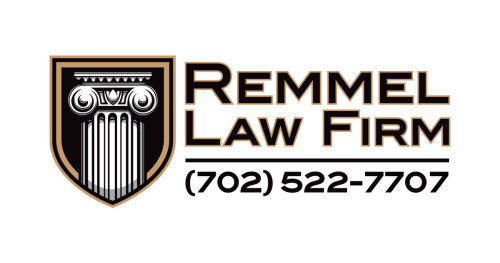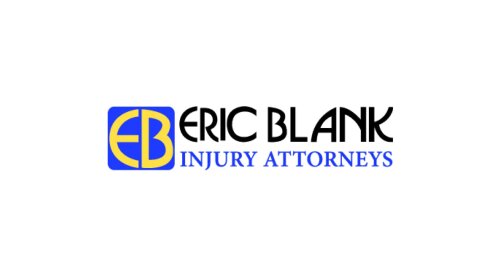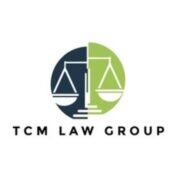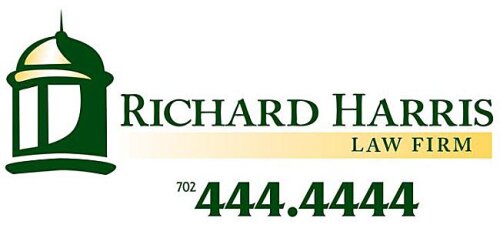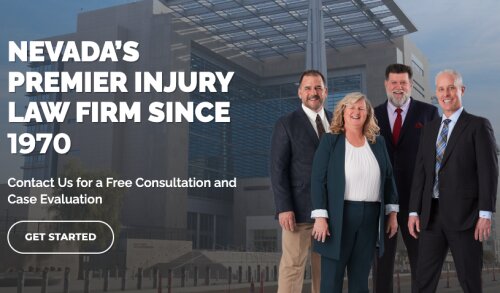Best Commercial Litigation Lawyers in Las Vegas
Share your needs with us, get contacted by law firms.
Free. Takes 2 min.
List of the best lawyers in Las Vegas, United States
About Commercial Litigation Law in Las Vegas, United States
Commercial litigation covers disputes related to business and commercial relationships - for example, contract disputes, partnership and shareholder fights, real estate and lease conflicts, business torts, fraud claims, and disputes over the sale of goods or services. In Las Vegas, most commercial litigation is handled in Nevada state courts, primarily the Eighth Judicial District Court in Clark County, but some disputes may proceed in federal court or through arbitration when agreements require it.
Las Vegas is a regional commercial hub with a mix of local small businesses, national companies, real estate and hospitality enterprises, and investors. That mix means commercial cases can range from relatively routine contract disputes to complex, high-stakes matters involving multiple parties, corporate structures, and multi-jurisdictional issues.
Why You May Need a Lawyer
Commercial litigation is often more complicated than consumer disputes. You may need a lawyer when:
- You are party to a contract dispute that could involve significant damages, ongoing obligations, or long-term business relationships.
- A business partner, shareholder, or employee alleges a breach of fiduciary duty, fraud, or misappropriation of assets.
- A landlord or tenant disputes lease terms or eviction for commercial premises.
- You need to enforce or defend against non-compete, non-solicitation, or confidentiality obligations.
- A counterparty refuses to pay for goods or services, or you need to recover debt owed to your business.
- Your business faces regulatory enforcement, or a supplier/customer has filed suit or threatened litigation.
- Immediate relief is required to prevent harm to your business - for example, to stop a competitor from using trade secrets or to prevent seizure of key assets.
A lawyer experienced in commercial litigation will help you evaluate the strength of your claim or defense, identify the best forum, work through pre-litigation strategies, manage discovery and evidence preservation, and advocate during settlement discussions, alternative dispute resolution, or trial.
Local Laws Overview
Understanding the local legal landscape in Las Vegas involves several state-level and local rules and practices that affect commercial disputes.
- State statutes and commercial code - Nevada statutes govern contract law, business entities, and commercial transactions. Nevada has adopted the Uniform Commercial Code, which governs the sale of goods and secured transactions. These statutes determine rights and remedies for many business disputes.
- Nevada Rules of Civil Procedure and local court rules - Civil procedure in state court follows the Nevada Rules of Civil Procedure, which set the rules for pleadings, discovery, motions, and trial practice. The Eighth Judicial District Court has its own local rules and standing orders that shape case management and schedules in Clark County.
- Statutes of limitations - Time limits for bringing claims vary by claim type. Common time frames often seen in practice include longer periods for written contract claims and shorter periods for fraud or tort claims. These deadlines are strictly enforced, so early consultation with counsel is important.
- Alternative dispute resolution - Arbitration and mediation clauses are common in commercial contracts. Nevada courts generally respect valid arbitration agreements and will stay or dismiss court actions where parties have agreed to arbitrate. Courts often encourage or require early mediation or settlement conferences.
- Remedies and provisional relief - Plaintiffs may seek damages, injunctive relief, specific performance in limited cases, or other equitable remedies. Nevada courts can grant temporary restraining orders and preliminary injunctions when immediate, irreparable harm is demonstrated. Nevada also provides mechanisms for prejudgment remedies and post-judgment enforcement, including garnishment, attachment, and judgments liens within statutory limits.
- Business entity and governance law - Disputes about corporations, limited liability companies, partnerships, and shareholders are governed by Nevada statutes and the entities' governing documents. These disputes often involve fiduciary duty claims, dissolution issues, and remedies tied to ownership structures.
- Local judicial practice - The Eighth Judicial District Court is the main trial court for commercial matters in Las Vegas. Local judges, case management practices, and calendaring procedures influence how a case proceeds. Experienced local counsel can navigate these practical aspects efficiently.
Frequently Asked Questions
What counts as commercial litigation?
Commercial litigation includes legal disputes arising from business activity - contract breaches, disputes among owners or partners, claims for unpaid invoices, business torts such as fraud or interference with business relations, intellectual property disputes in a commercial context, and real estate or lease disputes tied to business operations.
How long does a commercial lawsuit in Las Vegas usually take?
There is no single answer - timelines depend on case complexity, discovery volume, court calendars, and whether the parties pursue settlement, mediation, arbitration, or trial. Simple disputes may settle in a few months. Complex litigation can take a year or several years from filing to final resolution if it proceeds to trial and appeal.
How much does commercial litigation cost?
Costs vary widely. Factors include attorney hourly rates, case complexity, expert witness fees, discovery costs, and the length of litigation. Some cases are handled on contingency, fixed fees for discrete matters, or hourly rates with retainers. Early case assessment and targeted strategies can reduce unnecessary expense.
Do I need a Las Vegas or Nevada licensed lawyer to litigate here?
To represent you in Nevada state court, an attorney must be licensed by the Nevada State Bar. Out-of-state counsel may associate local counsel or seek admission pro hac vice in specific cases, subject to court rules. Local counsel brings benefits in understanding local court practice and networking.
What are the typical time limits to file a commercial claim?
Time limits depend on the cause of action. Written contract claims typically have longer limitation periods than some tort claims, and fraud claims often have shorter time windows and tolling rules. These periods are strictly enforced, so consult an attorney promptly to avoid losing rights due to deadlines.
Will my case automatically go to trial?
No. Most commercial cases settle before trial. Parties often resolve disputes through negotiation, mediation, or arbitration. Trial is usually the last resort when settlement cannot be reached or when a party needs a definitive judicial determination.
What if the other party is located outside Nevada?
Out-of-state parties do not prevent litigation in Nevada if the dispute has sufficient connection to Nevada - for example, if the contract was formed here, performance occurred here, or the defendant has sufficient contacts with the state. Forum selection and choice-of-law clauses in contracts can influence where and how disputes are resolved.
Can I get emergency relief to stop someone from taking action that would harm my business?
Yes. Courts can grant temporary restraining orders or preliminary injunctions to prevent immediate and irreparable harm. To obtain emergency relief you generally must show a likelihood of success on the merits, irreparable harm absent relief, and that the balance of harms and public interest weigh in your favor. Emergency relief often requires quick action and a strong factual record.
How does arbitration affect my options for dispute resolution?
If your contract requires arbitration, courts will often compel arbitration and decline to decide the case. Arbitration can be faster and more private than court litigation, but it has different procedures and limits on discovery and appeal. Review contracts early to understand whether arbitration applies and whether the arbitration clause is enforceable.
How should I preserve evidence and prepare before I meet an attorney?
Preserve all relevant documents and communications - contracts, invoices, emails, text messages, financial records, and any physical evidence. Make a factual timeline of events, identify key witnesses, and document damages or losses. Avoid deleting electronic files or altering documents - spoliation can lead to sanctions. Bring this information to your initial meeting with counsel to enable a prompt evaluation.
Additional Resources
For authoritative information and assistance, consider these types of local and state resources:
- Nevada State Bar - for information on licensed attorneys, lawyer referrals, and ethics rules.
- Eighth Judicial District Court - the primary trial court for Clark County, which issues local rules, calendars, and forms.
- Nevada Legislature and Nevada Revised Statutes - for the text of state statutes that govern contracts, business entities, and civil procedure.
- Nevada Secretary of State - for corporate filings, business registrations, and records that can be useful in commercial disputes.
- Nevada Judiciary and Administrative Office of the Courts - for court procedural information and resources on civil case management.
- Clark County Recorder and County Clerk - for property records, recorded liens, and local filings.
- Local bar associations and business groups - many offer lawyer referral services, continuing legal education, and resources for dispute resolution.
Next Steps
1. Assess urgency - If your business faces imminent harm, identify whether emergency court relief is needed immediately. Preservation of evidence is critical - secure documents and electronic files now.
2. Gather information - Collect contracts, correspondence, invoices, financial records, corporate documents, and any evidence of damages. Create a simple timeline of events and a list of potential witnesses.
3. Consider pre-litigation options - A demand letter, negotiation, or mediation can resolve many disputes faster and with lower cost than litigation. Determine whether contract terms require notice, waiting periods, or arbitration.
4. Consult an experienced commercial litigator - Seek a lawyer with relevant Nevada and Las Vegas experience. Ask about the attorney s experience with similar cases, fee structure, likely costs, possible outcomes, and case strategy.
5. Evaluate funding and costs - Discuss fee arrangements, retainers, contingency options, and potential use of litigation financing or insurance coverage. Make realistic plans for legal expenses and timelines.
6. Develop a strategy - With counsel, weigh the benefits of settlement, ADR, or litigation. Create a practical plan for discovery, evidence collection, and remedies to pursue.
7. Stay organized and communicative - Keep clear records of all interactions, follow counsel s guidance on communications with the other party, and respond promptly to legal requests to protect your position.
Commercial litigation can be complex and consequential for your business. Early action, careful preservation of evidence, and experienced local counsel will help you understand your options and pursue the best path for resolving the dispute.
Lawzana helps you find the best lawyers and law firms in Las Vegas through a curated and pre-screened list of qualified legal professionals. Our platform offers rankings and detailed profiles of attorneys and law firms, allowing you to compare based on practice areas, including Commercial Litigation, experience, and client feedback.
Each profile includes a description of the firm's areas of practice, client reviews, team members and partners, year of establishment, spoken languages, office locations, contact information, social media presence, and any published articles or resources. Most firms on our platform speak English and are experienced in both local and international legal matters.
Get a quote from top-rated law firms in Las Vegas, United States — quickly, securely, and without unnecessary hassle.
Disclaimer:
The information provided on this page is for general informational purposes only and does not constitute legal advice. While we strive to ensure the accuracy and relevance of the content, legal information may change over time, and interpretations of the law can vary. You should always consult with a qualified legal professional for advice specific to your situation.
We disclaim all liability for actions taken or not taken based on the content of this page. If you believe any information is incorrect or outdated, please contact us, and we will review and update it where appropriate.



